|
Yesterday I spent a thought provoking day immersed in the world of the awe inspiring Suffragettes and Suffragists who fought so determinedly for the freedoms that we enjoy today. They are the very reason that the project Processions is taking place, and the importance of their place in history will be marked as thousands of us march with our banners 10th June. I knew a modicum about their actions and beliefs, but I didn't understand any of them except in an abstract sort of way; the names of prominent members of the cause such as Millicent Fawcett and Emmeline Pankhurst were familiar, but a visceral connection to the lives and experiences of these women remained elusive. I boarded the train to Charing Cross on a mission to view the 'Votes For Women' exhibition at the National Portrait Gallery. I wanted to see the faces of these women and look them in the eye across the decades, viewing intimate details of their lives such as their style of dress and the quality of their gaze. Whist journeying, I dove into 'Turbulent Spinsters'; a book by local historian Ann Kramer that chronicles the activities of Suffragettes and Suffragists in Hastings & St Leonards. As I read I learned about formidable and determined local characters such as Isabella Darent Harrison who refused to pay her taxes, upholding the famous slogan 'no taxation without representation'. Withholding taxes was an unpleasant experience with bailiffs seizing personal items for sale at auction, Undeterred, Darent Harrison barricaded herself into her house for more than a month before the bailiffs finally managed to obtain entry. Not content with this, she organised a protest march on the auction house, causing a ruckus and enabling her niece to purchase her items back. As soon as I stepped into the exhibition I was immediately taken with the strength that emanated from the photographs of the women; their irrepressible characters shone through the black and white photography and I could see that they were full of wit, wisdom and a steely determination. I was particularly moved by a montage of women who had been photographed by Scotland Yard undercover - such was deemed their threat. One in particular, Kitty Marion, had clearly been feisty and endured being force fed in prison 242 times under the barbaric 'Cat and Mouse' law that prevented Suffragette prisoners from dying by hunger strike. The authorities were terrified that this would make them martyrs and strengthen their cause. Details of hunger striking, arson attacks, banners and processions immediately reminded me of growing up in the Troubles of Northern Ireland and I could not help but draw comparisons. It made me reflect on the similarities between oppressed groups and how desperate people take desperate action. I was particularly jolted when I read in 'Turbulent Spinsters' that a cry of the Suffragettes had been 'No surrender!', as this is a popular slogan used by unionist groups in Ireland. Far sadder than Kitty Marion's 242 force feedings is the story of Mary Ward, pictured above. Despite being well educated and having charitable views, Mary Ward was a prominent anti-suffragist, becoming the leader of the Women's Anti-Suffrage Association, which had a staggering 15,000 paying members. As a product of life in the Troubles, I know all too well how indoctrinated a person can become and completely lose sight of the truth. Good people can become blinded by their own limited beliefs and forget that anything is possible. I read with fascination that many men supported women's suffrage and made great efforts to assist the various women's suffrage groups that existed. Above is pictured Millicent Fawcett with her husband Henry - unfortunately blinded in an accident, but undeterred in helping his wife. This reminded me that the 'oppressor' can help the oppressed and not give in to defensiveness and shame. Let's hope that more people can be like Henry Fawcett and bravely shoulder those who are downtrodden or vulnerable. How much better for it life on this planet would be.
0 Comments
The third and penultimate gathering of our group saw us make huge headway with our banner; our paper draft sprung into life as colourful fabric waves and letters were carefully cut from cloth. I think the pictures say everything.
There is a lovely, gentle and quiet connection building among us as we work and create something that we all feel is part of us. Everyone agrees that the process of making something in a group setting is a truly bonding experience - for our group completely free of competition or striving. I can only imagine the sense of empowerment women must have felt more than a century ago as they created these banners in union for a much larger cause - the right to vote represented larger concerns for women such as the right to be recognised as people, and not the property of their husbands to be sold or to have their children wrenched from them. One of our group soberly told us that the last wife sale was held in Hailsham, near us in East Sussex. Quite rightly, we take many of our freedoms today for granted, but it is so beneficial to reflect on the fact that not so long ago women were not regarded as equal to men in any way, and that we are still dealing with the hangover from this today. Would you like to join us on the PROCESSIONS march? You don't have to make a banner to take part, you can sign up and get more information at this website: www.processions.co.uk/ 10th June, London Starting point: Park Lane, W1K 7AJ Finishing point: Abingdon Street, SW1P 3JY Distance of route: 2.6 miles / 4.2 km Assembly at the start point from: 12.15- 13:15 Start time: approximately 14.00 Working with incredible women of today and thinking about awe inspiring women of the past has made me reflect more and more on the powerful women I have had the good fortune to meet on my travels around the globe. I came across this post from a previous diary I kept during a trip to Afghanistan - a place where women are still fighting bravely to be seen and heard. The idea that anyone would hold a Graffiti Festival in Kabul, let alone a young female practicing artist, is incredulous. It speaks of the courage, defiance and optimism of women everywhere. It made me smile to think of our own banner which I feel contains the perfect balance of positivity and punk!
It’s really important to point out that it’s not all doom and gloom in Kabul and that loads of people are doing everything they can to try and put the city back together, despite the constant interference of foreign troops and unhelpful governments. There are lots of bright young artists and musicians and we were lucky enough to be able to attend the opening of this Graffiti Festival held by a young woman called Shamsia who is the ‘Blue Burqa’ Graffiti Artist. One of the chaps made a beautiful speech in English about the fact that they are trying to paint the city back to beautiful. And he added that when you drop a drop of paint into water it changes the water, and the paint from the festival would help to change the city. Saturday 5th May saw the second get together in Hastings of our group of amazing, talented, creative women. The weather was balmy and the sky was blue - clearly the stimulants needed for great ideas to flow - by the end of the session we had our design planned, drafted and pinned to the wall on huge sheets of paper.
During our first meeting, everyone had gathered and brainstormed words that they hoped the banner would represent; these included positivity, defiance, punk, community, inspiration, hope, persistence and disobedience - a fairly tall order for one sole banner to convey. Undeterred, our girls cogitated and negotiated until they had come up with something that communicated strength and hope in equal measure, as well as considering practical concerns such as legibility, design and the practicalities associated with the making process. I told you they were awesome! I reflected on how organised, respectful and patient they were during the exercise; no-one talked over anyone else, and everyone's ideas were considered and respected. There was a quiet, graceful force in the room. Considering that many of them had uttered the week before 'I don't know why I've been picked for this project', I could see their confidence blossoming and a general air of a self assured 'we can do this'. There was an agreement that perfectionism would be left behind at the door, and that there would be an embrace, even encouragement, of imperfect hand stitches in the work. Considering the tag line at the bottom of the banner will read 'Hastings women rock the boat', this seems entirely fitting. |
AuthorA diary of my journey through the PROCESSIONS project, and musings from my personal life as a feminist. Archives
January 2019
Categories |
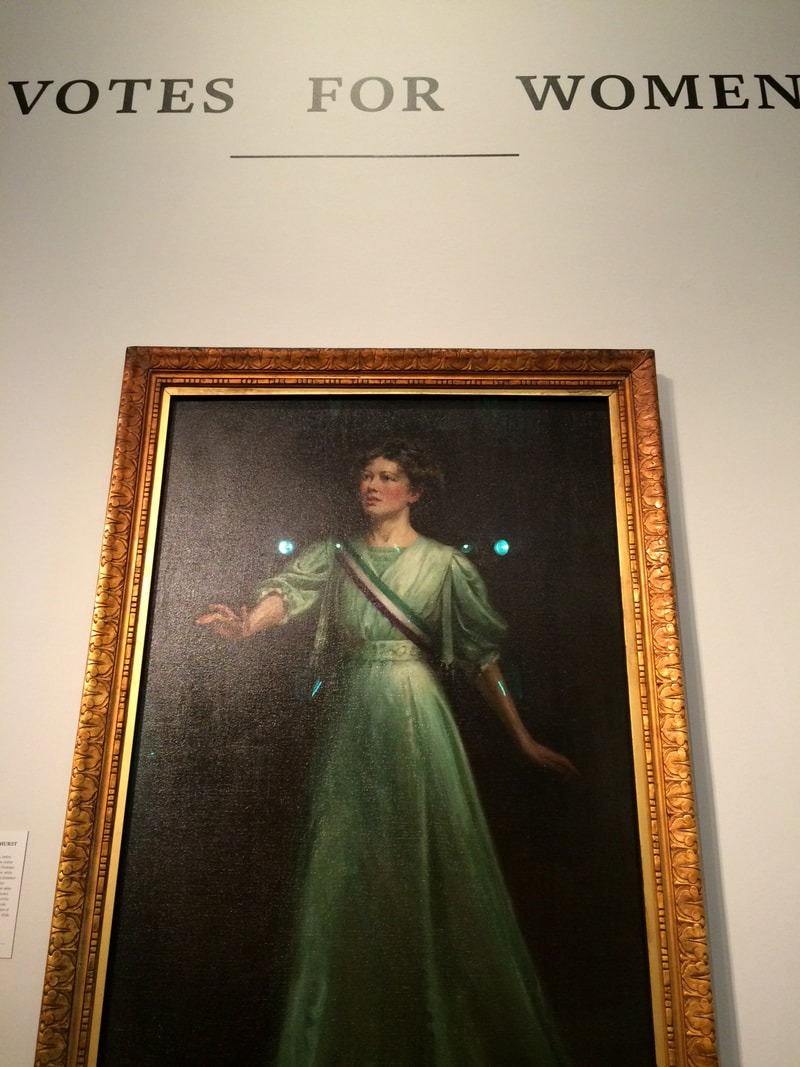
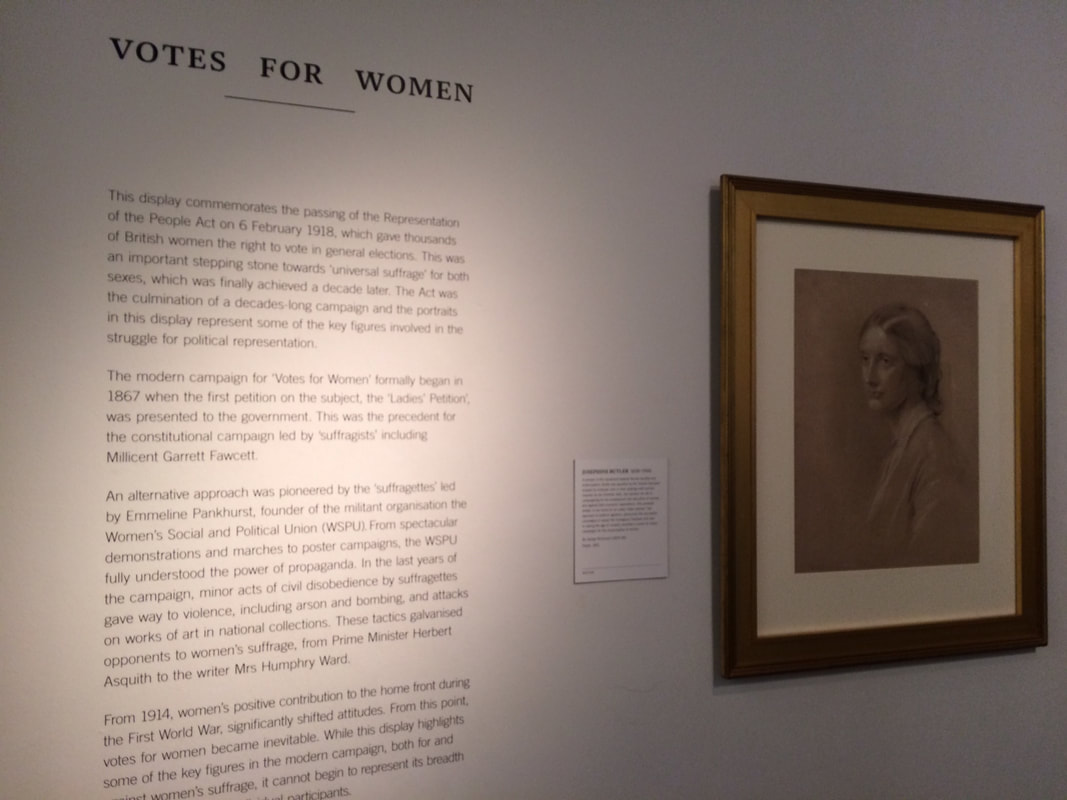
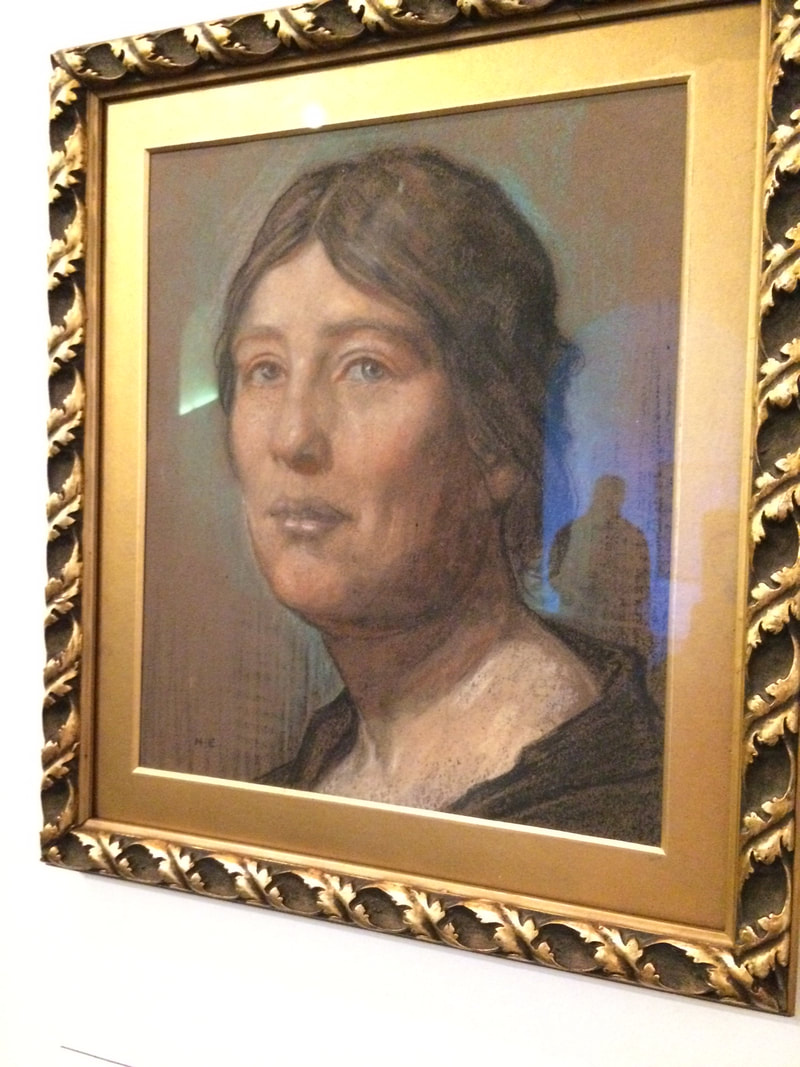
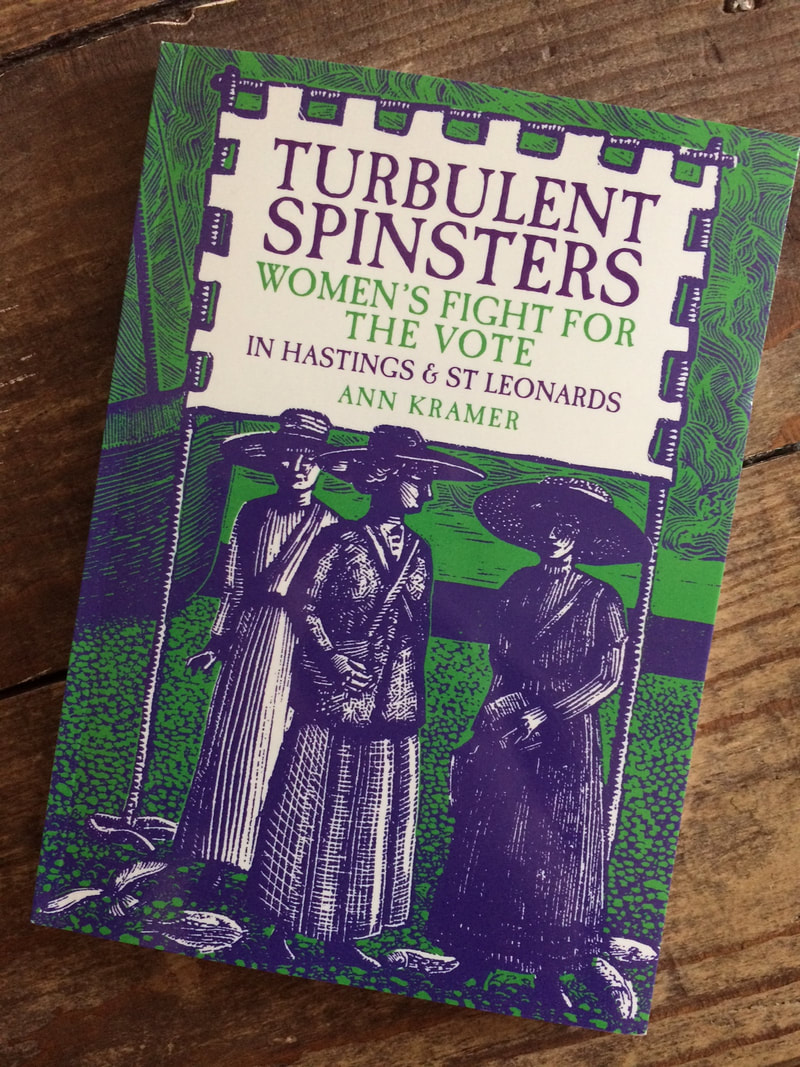
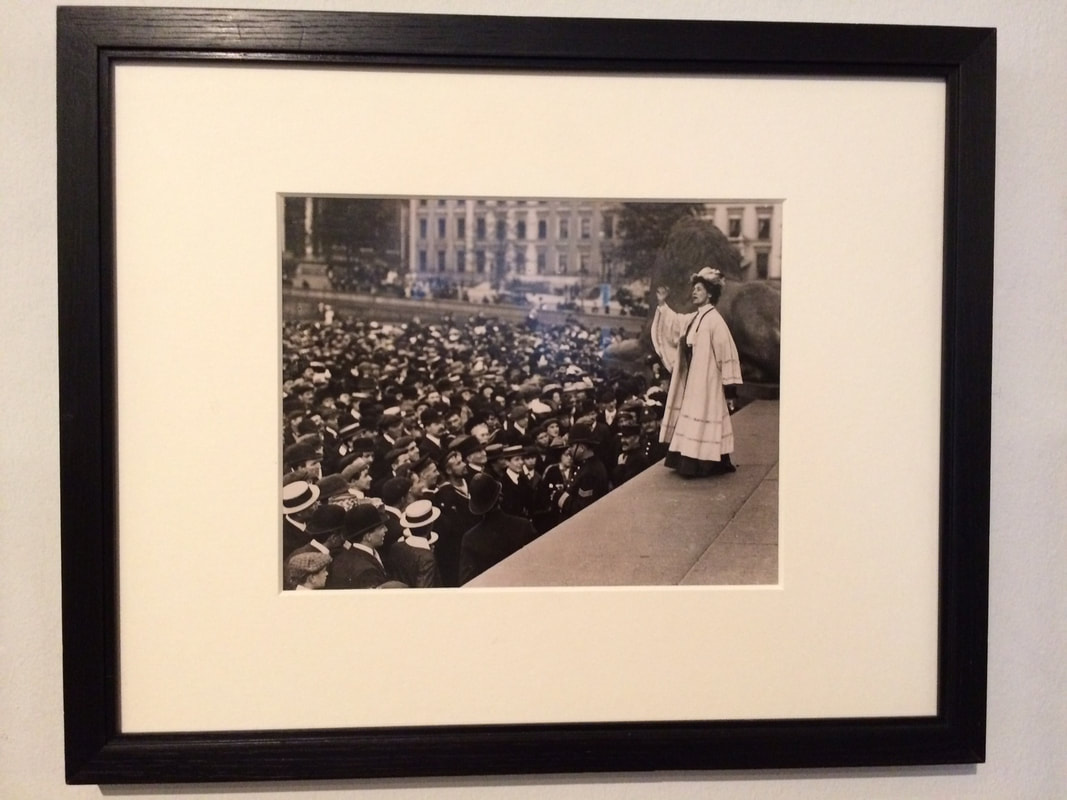
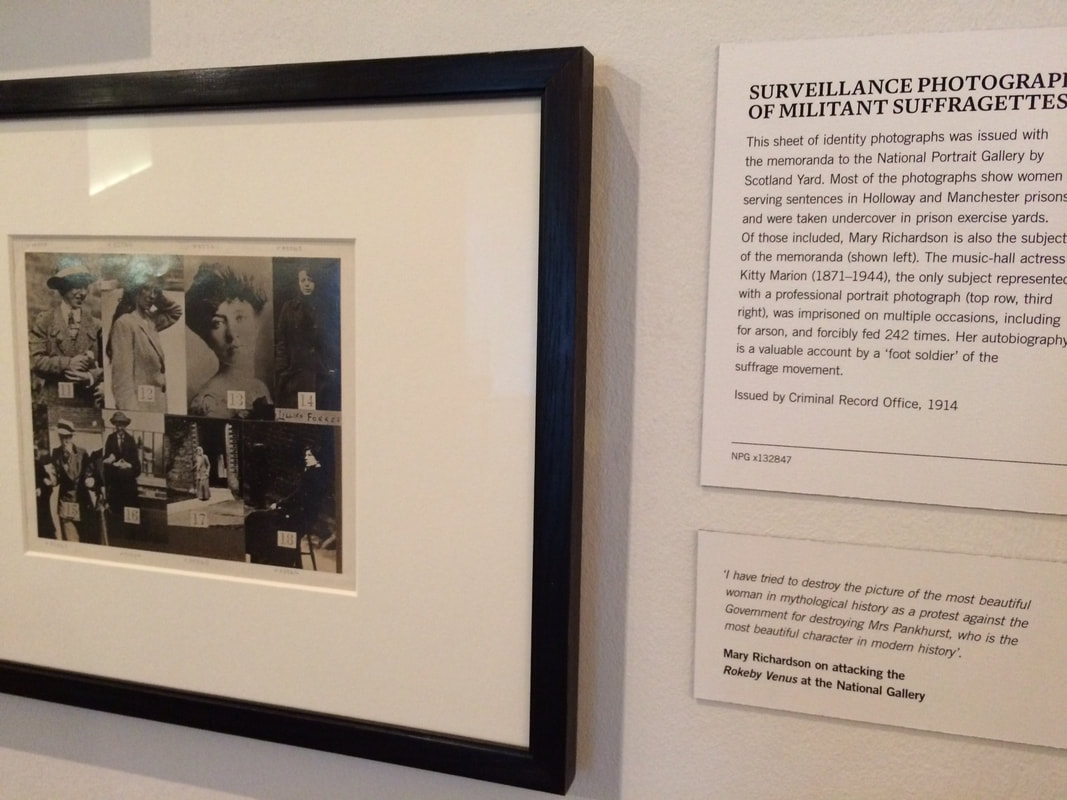
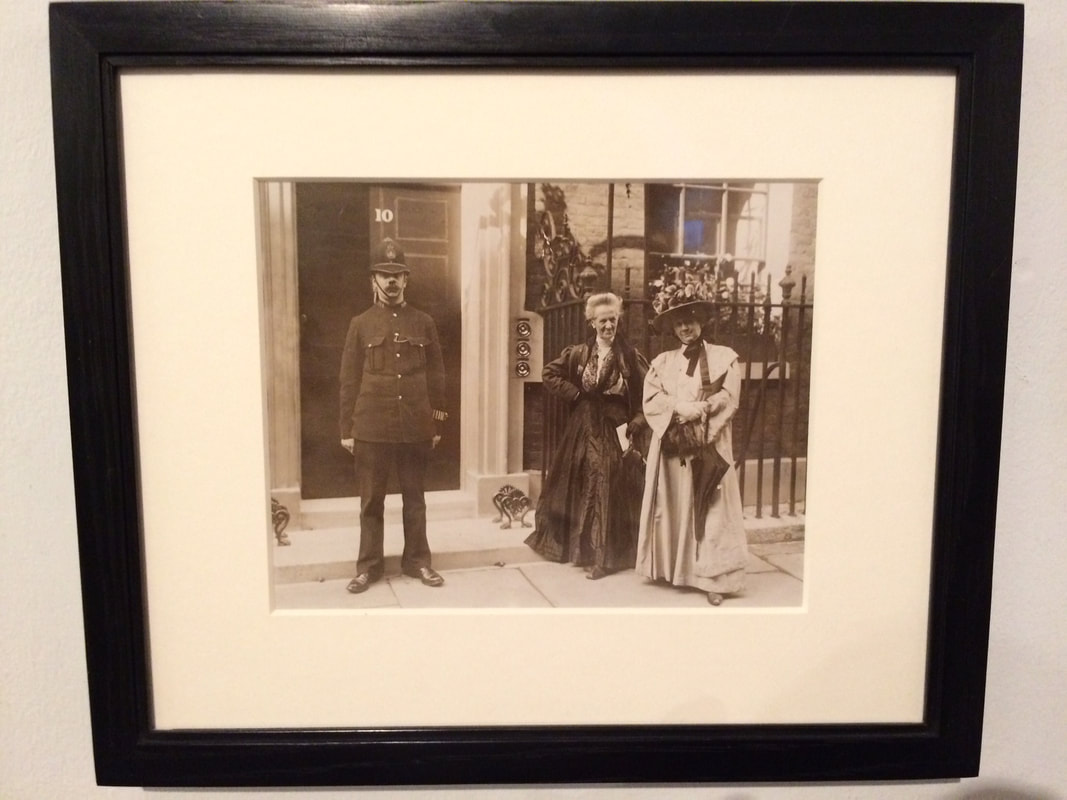
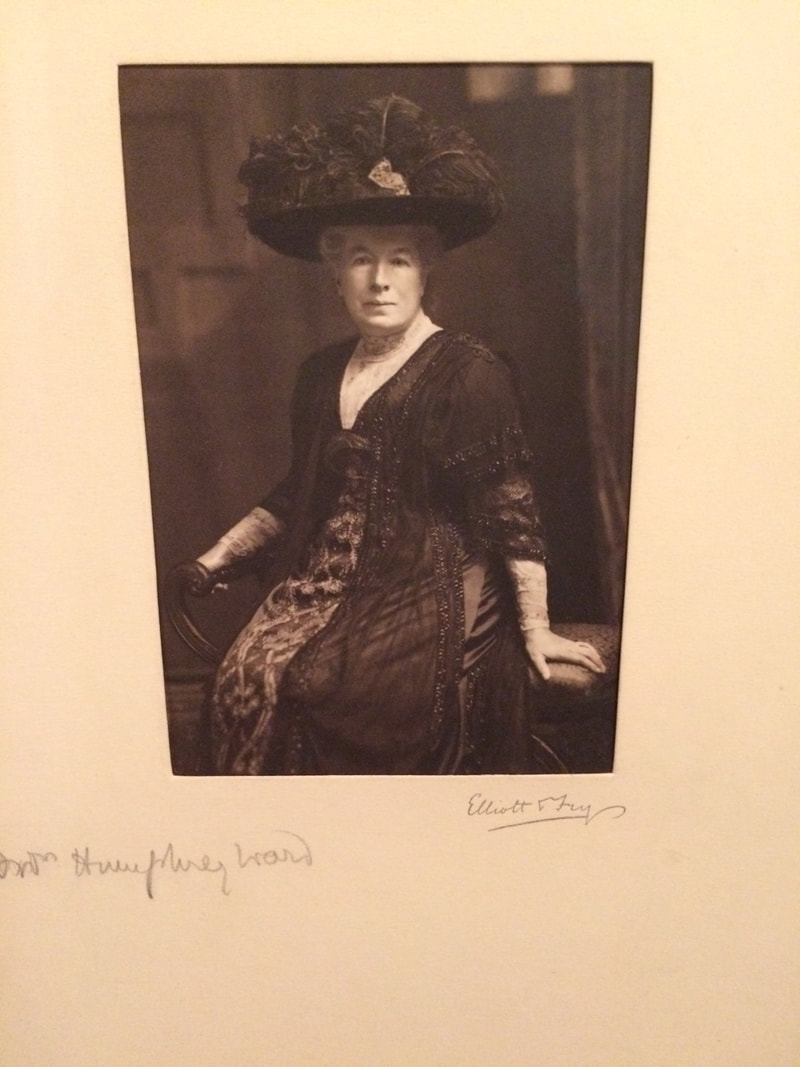
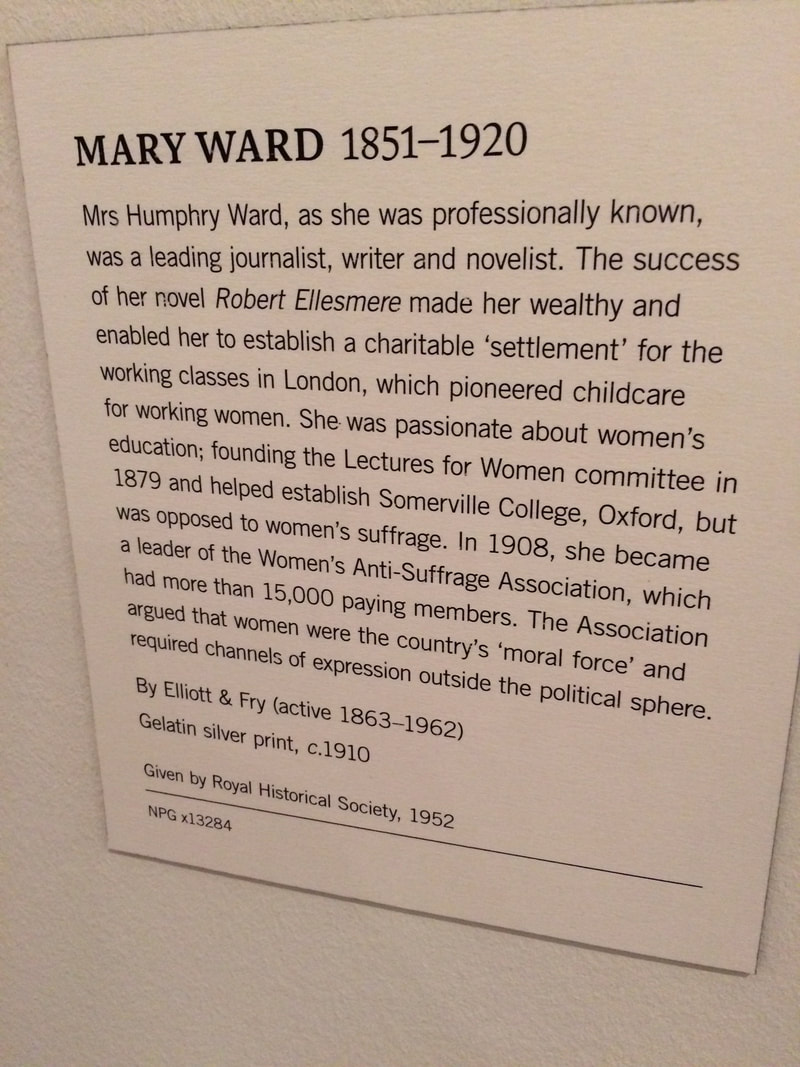
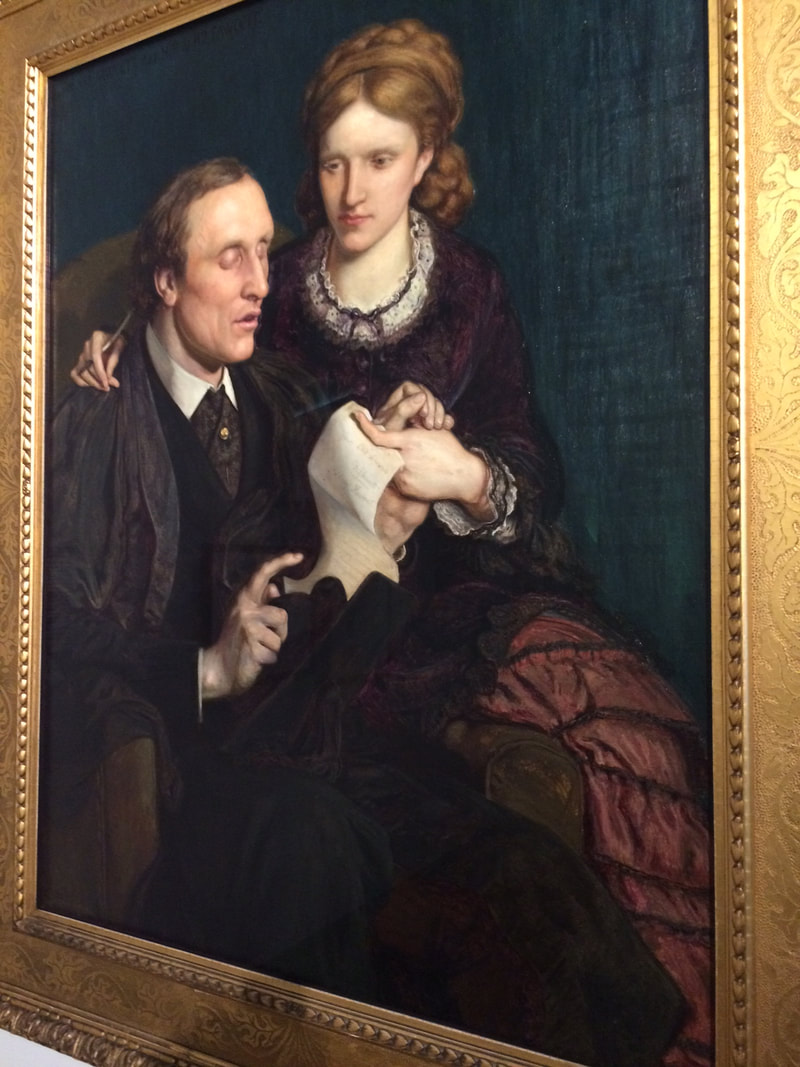
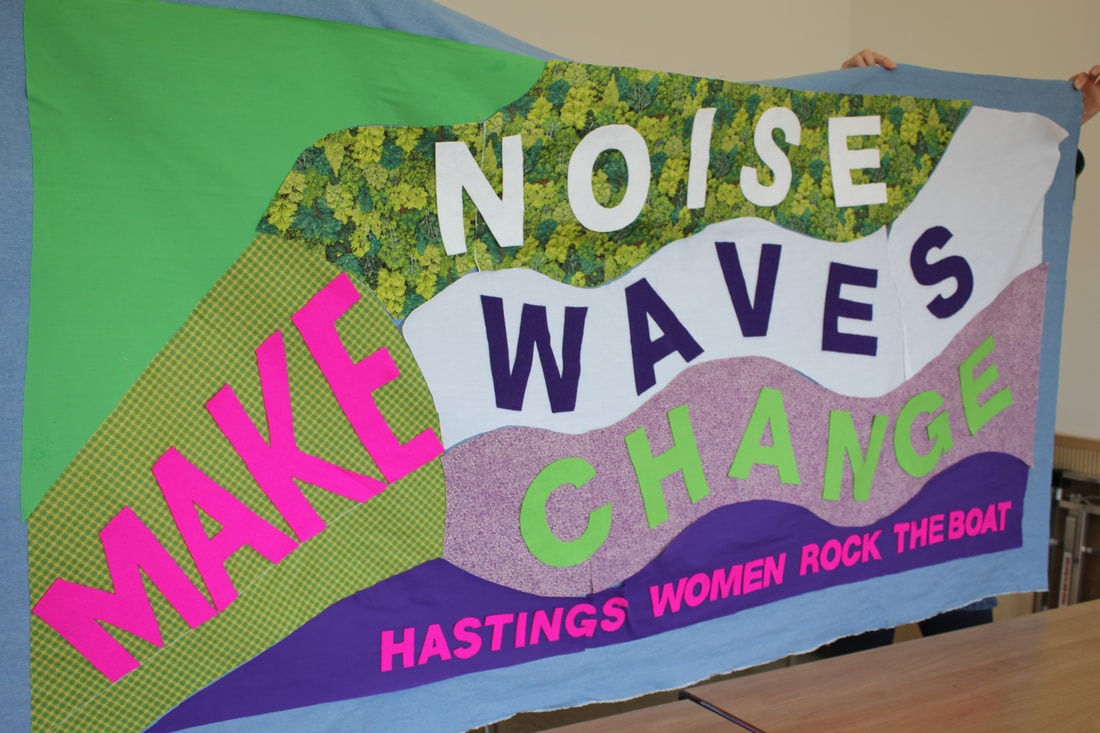
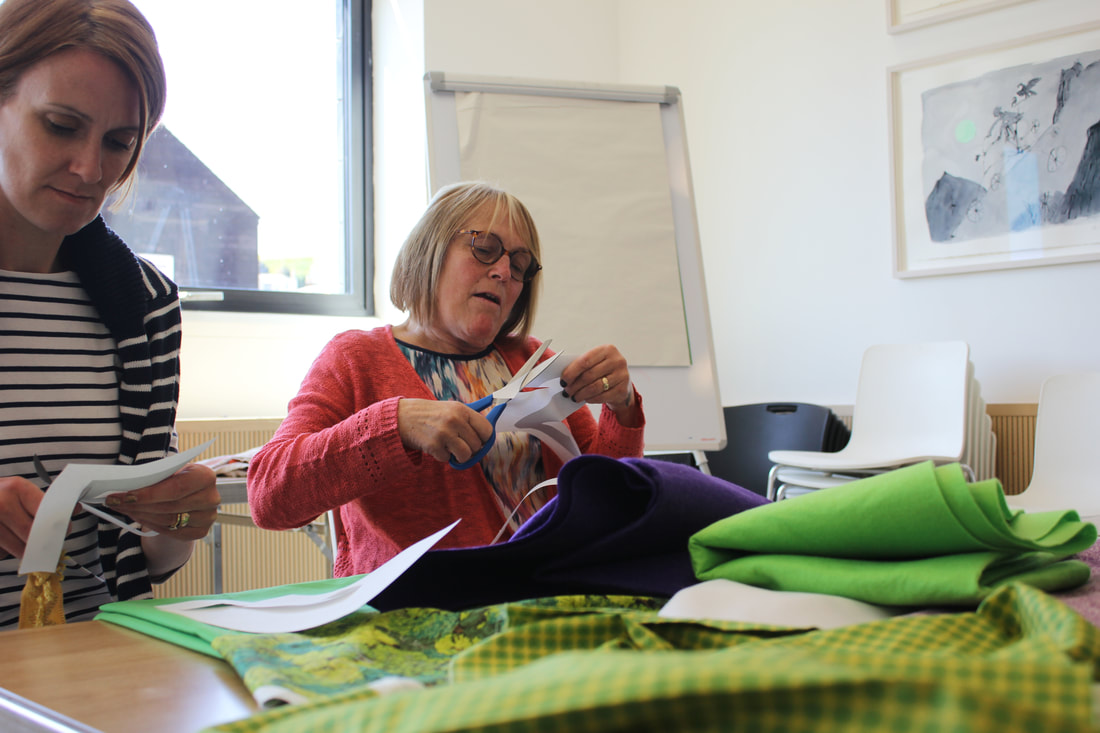
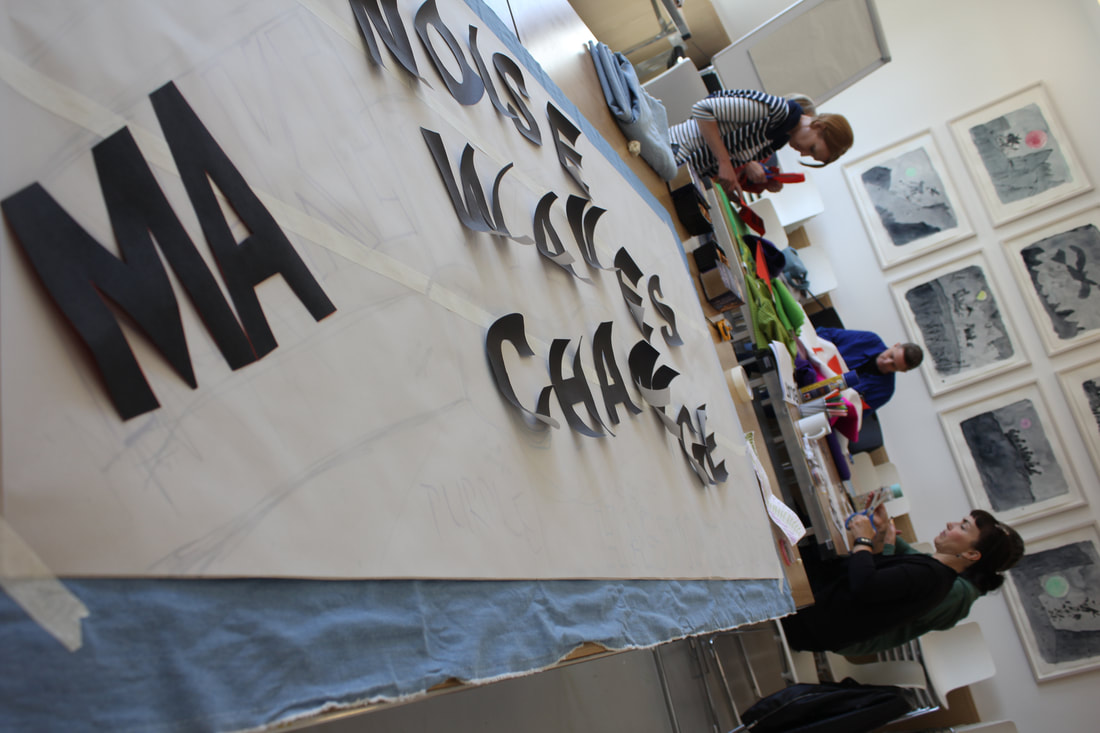
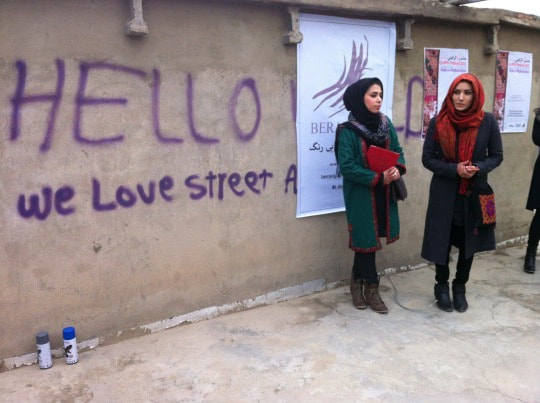
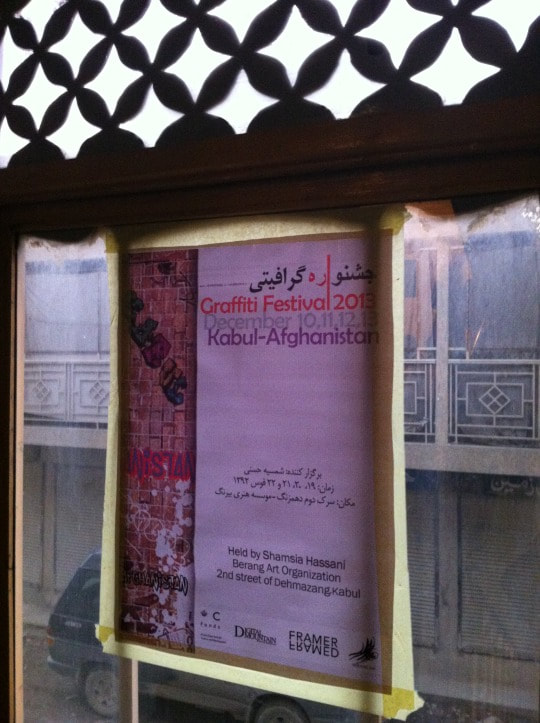
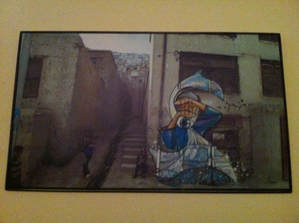
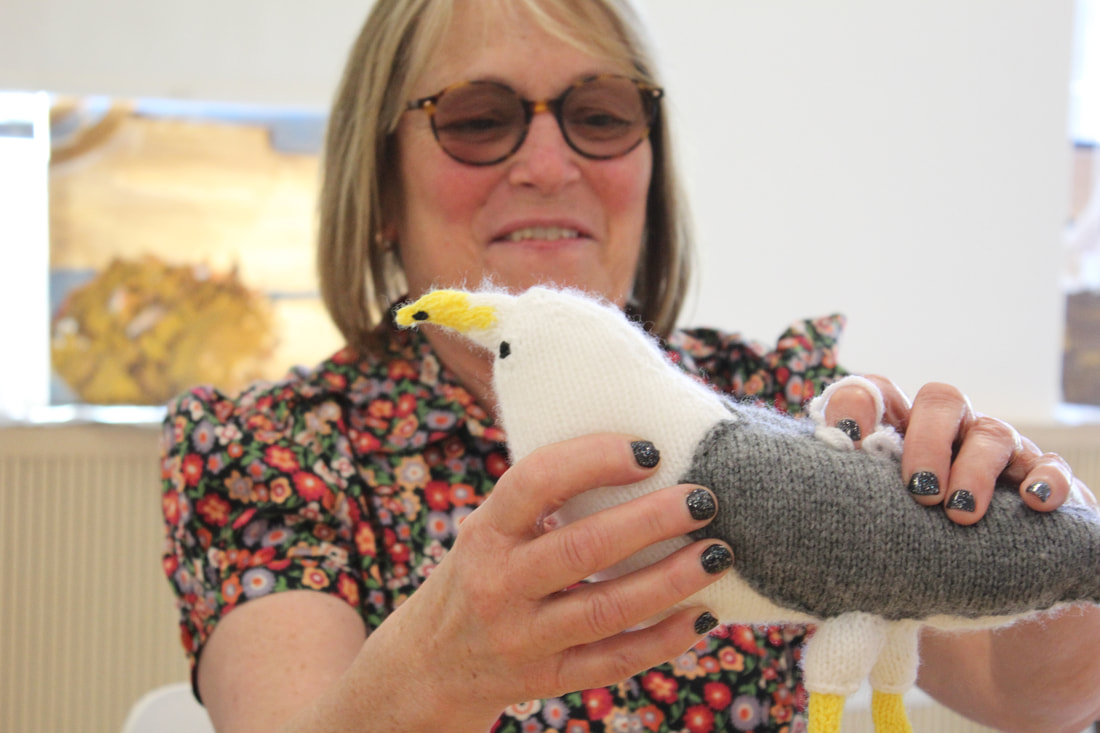
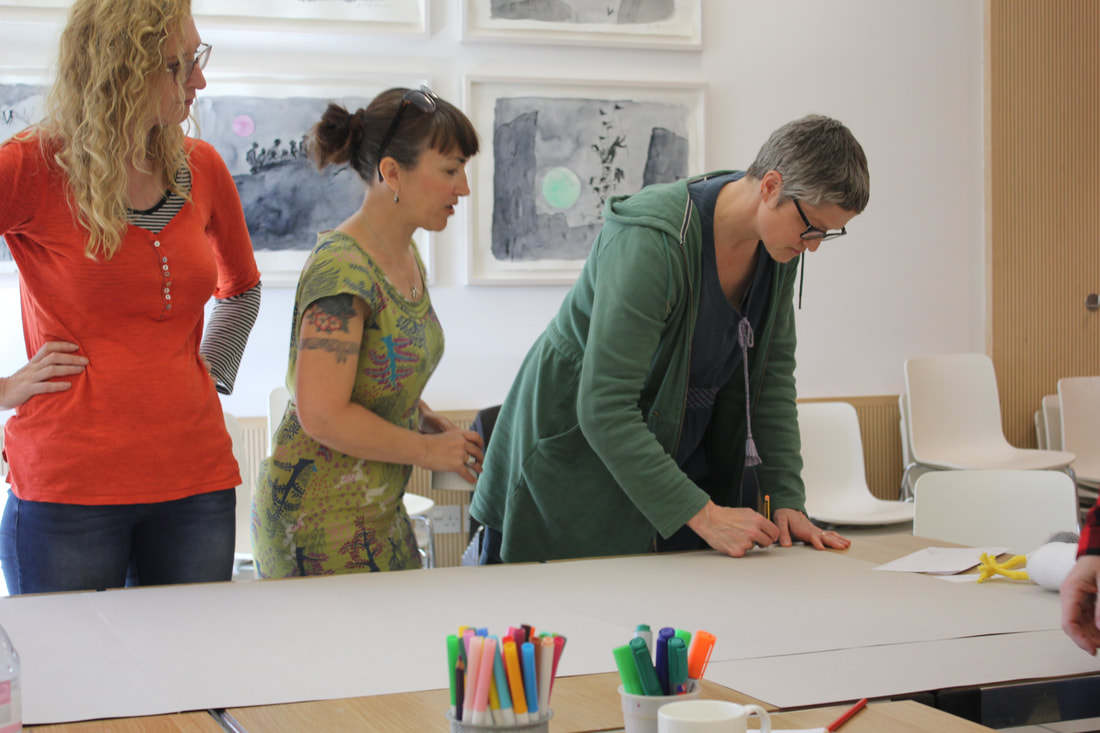
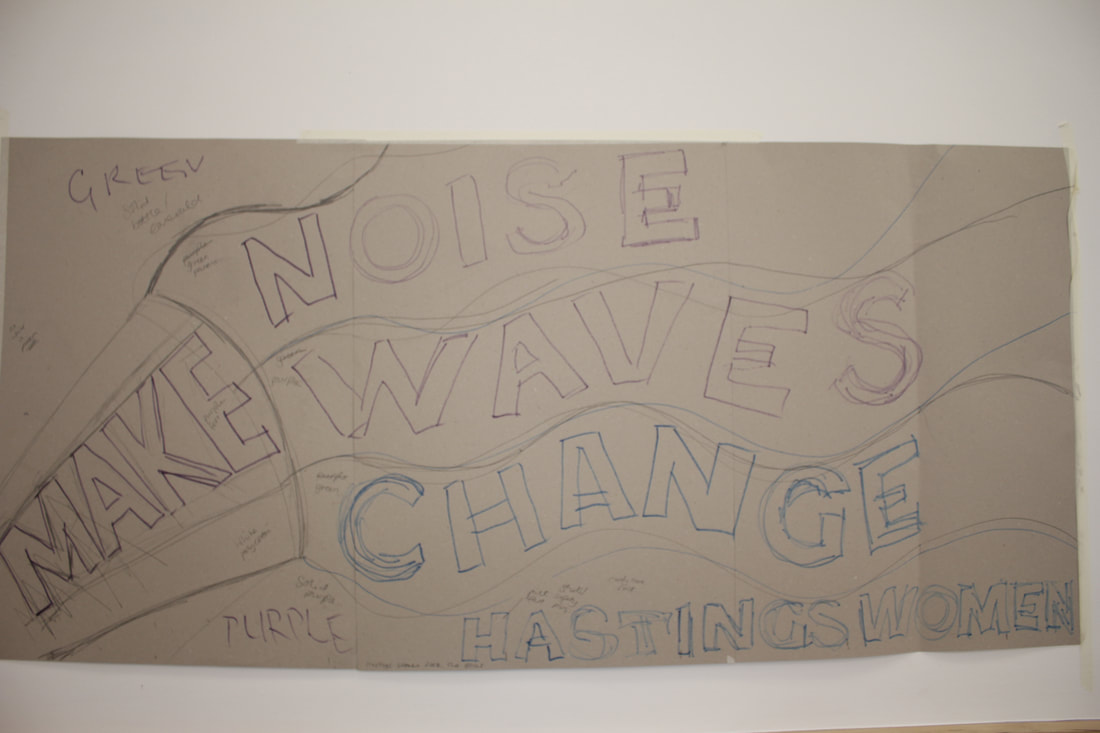
 RSS Feed
RSS Feed